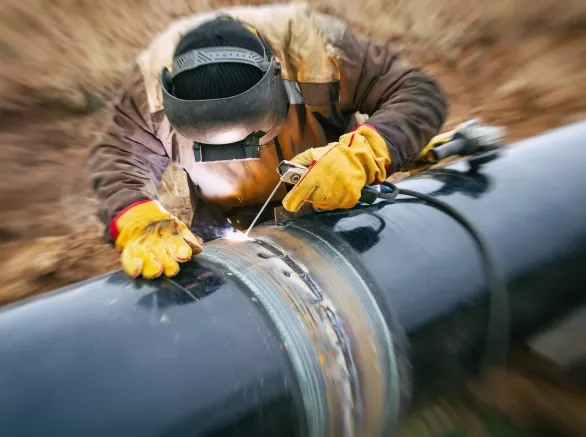

- Ph.D., Chemical Engineering, University of Maryland, College Park, 2013
- B.S., Chemical Engineering, Lehigh University, 2007
- Professional Engineer Metallurgical, California, #2004
- Professional Engineer Metallurgical, Texas, #148545
- American Welding Society Certified Welding Inspector (CWI)
- American Welding Society
Dr. Kaplowitz's areas of expertise include metallurgy, welding engineering, failure analysis, fatigue and fracture, corrosion, non-destructive examination, and materials characterization. He specializes in assessment of welded components, welding metallurgy, metallic coatings, powder process development, and metals additive manufacturing.
Dr. Kaplowitz has proficiency with mechanical testing as well as microstructural analysis via optical microscopy, scanning electron microscopy (SEM), transmission electron microscopy (TEM), and energy dispersive X-ray spectroscopy (EDS). He has experience in a wide range of industries including oil & gas, construction, and consumer electronics.
Prior to joining Exponent, Dr. Kaplowitz was a postdoctoral researcher at the U.S. Army Research Laboratory Center for Cold Spray where he managed cold spray dimensional repair and additive manufacturing testing programs for clients, including the private sector, defense contractors, and divisions of the U.S. Army, Navy, and Air Force. Dr. Kaplowitz planned and performed equipment operation for novel cold/thermal spray research with a wide range of metal, ceramic, and composite powder and substrate combinations. For these investigations, he characterized deposit quality and performance with metallurgical analyses, SEM, optical microscopy, and mechanical testing.
During his graduate study at the University of Maryland, Dr. Kaplowitz researched small-scale nanothermite production using mass flow controlled aerosol systems. His work focused on characterization of synthesized aluminum nanopowder and thermite combinations with SEM, TEM, XPS, TGA, combustion chamber testing, and temperature-jump wire ignition. He invented and patented a scalable process for continuous production of nanoaluminum, improving efficiency and reducing costs compared to current batch-based systems. He subsequently developed thin film coated nanoaluminum products that increased aluminum fuel content and decreased required ignition temperature.
